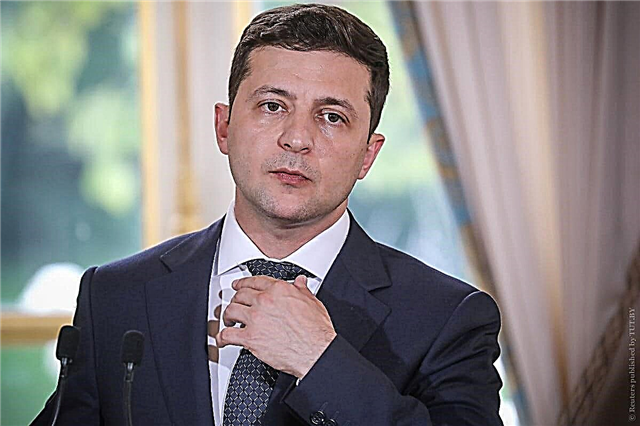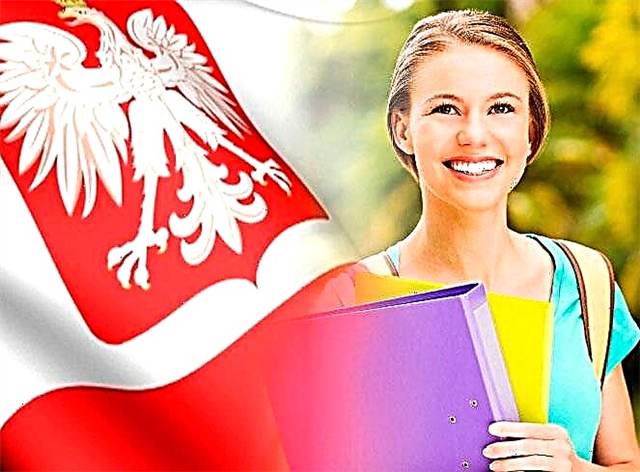Obtaining higher education in Poland is an excellent chance to become the owner of a European-level diploma and find a job abroad in the future. At the same time, there is an opportunity to be trained not only in Polish, but also in English. You should think about how to enter a Polish university already in the 11th grade and start preparing documents in advance.

Features of higher education in the Republic of Poland
There are two types of universities in Poland: private and public. Private universities are paid, and they do not provide scholarships. In public universities, you can apply for a budget place and receive a scholarship.
You can apply to any of the universities in Poland on your own or by using the services of an intermediary company that will prepare your documents.
The main advantages of studying at Polish universities for young people from CIS countries are the following:
- there are no age restrictions for applicants;
- higher educational institutions do not conduct traditional entrance exams and tests (with the exception of a number of prestigious universities in the country and faculties of medical and creative orientation, as well as the competition for the Card of the Pole);
- the results of passing the ZNO, USE or CT are not taken into account; only the average score of the certificate or diploma is taken into account when entering the magistracy;
- you can study in English (only paid programs);
- there is the possibility of submitting documents 2 times a year - by the beginning of the winter and summer semesters;
- low tuition fees compared to other European universities.
Step-by-step instructions for entering a Polish university
If you want to reduce the time spent on preparation and execution of documents and are ready to pay for the services of a third-party organization, there is always an opportunity to contact an intermediary company. Such structures offer assistance not only in the preparation and submission of documents, but also in finding housing, adaptation and even employment of future students.
Those who want to do everything on their own should adhere to the following plan for entering a Polish university.
- Choosing a suitable educational institution. If you are interested in Polish institutes and universities, visit the special website of the Polish Ministry of Education, which provides a detailed catalog of all operating educational institutions. Finding the right university is simplified thanks to a convenient filtering system by category. Detailed information about each university is presented on the website of a particular educational institution. Having chosen a university, find the contacts of the recruiting department, which also works with foreign students - this is where you can clarify all the details of possible training and the availability of places for the specialties you are interested in.
- Preparation of a package of documents. You can check the complete list of required papers on the website of the university you are interested in or by calling the contact phone numbers. It should be borne in mind that the list of documents depends on the conditions under which the admission to Poland is carried out. If you are not confident in your abilities, contact the intermediaries who will help you check the correctness of the paperwork.
- Tuition payment. It is carried out after receiving a preliminary Zaswiadczenie for admission from the university. Payment is made, as a rule, one year in advance according to the details specified in the “attestation”.
- Obtaining a study permit. The official name of the document is Zaswiadczenie o pryzjeciu cudzoziemca na studia. Issued by the educational institution you are applying to. The process of making a decision on issuing a permit takes about 2 weeks. It is this document, along with the receipt of payment for tuition, that is the basis for submitting documents for a student visa.

- Registration of a student visa. Initially, prospective foreign students of Polish universities apply for a category D national visa valid for 6 or 12 months. After that, it will need to be renewed.
Another option for entering the country is the presence of a Schengen visa of category C. This short-term visa is suitable for making preliminary trips in order to get to know the university and personally submit documents. After starting their studies in Poland, foreign students can apply for a Residence Card.
A package of documents for studying at a Polish university
When preparing documents, it should be borne in mind that many of them must have a certified translation into Polish. In addition, certificates of secondary education must be confirmed by an apostille, which certifies their authenticity. Keep in mind that universities, at their discretion, may put forward additional requirements for documents, so be sure to check the information with the selection committee.
If you decide to apply to a Polish university, you will definitely need:
- application for admission to the university in the form established by the educational institution itself;
- original certificate of complete secondary education / bachelor's or specialist's, engineer, master's degree;
- a completed applicant's application form provided by the university itself (often filled out online);
- photo of the established sample (universities can set their own requirements for the format and number of photos);
- a valid international passport and its photocopy / birth certificate with translation and a study permit from legal representatives with copies of the first pages of their passports - for underage applicants;
- medical examination certificate, with translation;
- insurance policy;
- receipts for tuition fees and registration fees;
- language proficiency certificates: for Polish - at the B1 level, for English - B2 according to TOEFL and BT-55+, IELTS-6.0, LCCI II, TOEIC-730-855;
- photocopy of visa, residence card or Pole card.
When to apply for admission to a Polish university
Each university sets the deadline for submission of documents independently - they should be clarified at the admissions office of a particular educational institution.
Traditionally, the academic year in Polish universities is divided into two semesters:
- October 1 - 1 semester;
- March 1 - semester 2.
Most of the applicants start their studies in the fall, submitting packages of documents mainly in July-September. By agreement with the administration of the university, you can submit documents and start training from the 2nd semester.

How to enter a Polish university with a Pole Card through the consulate
Unlike other foreigners, holders of the Pole Card can count on preferential conditions for admission to state Polish universities. To take advantage of this benefit, you should contact the consulate of the Republic of Poland in your country.
The procedure for admission to a university on the basis of the Pole Card takes place in several stages:
- Waiting for the announcement of the start of recruitment on the website of the Polish consulate (in Ukraine, Russia, Belarus). The recruitment usually begins in late February - early March, and ends on April 10 for Belarusians and April 20 for Russians and Ukrainians. It is necessary to meet these deadlines with the submission of documents, so it is better to start preparing them in advance, so that, if necessary, there is a time gap for submitting missing papers to the consulate.
- Filling out the questionnaire. Possibly online or in printed form with subsequent submission in person. Please note that school must be completed no more than 3 years ago. If it is the last year of study, then the applicant must be at least 17 years old on October 1 of the current year.
- Collection of documents. The Card of the Pole is provided without fail. Minor applicants must attach a consent to study in Poland from their legal representatives.In addition, the consulate may require the documents on the basis of which the Pole's Card was issued. If you are in your final year of school, you will need to provide a report card.
- Interview with the consul and submission of documents. Parents and other legal representatives are not allowed for an interview - only the applicant is present. The interview is conducted in Polish. Questions may relate to the history and culture of Poland, as well as the personality of the applicant himself.
- Exams. Held in mid-May. There are only three exams: Polish and two subjects, depending on the specialty you are interested in. All questions are known in advance, and you will have the opportunity to prepare. The interval between exams is no more than 5 minutes. Teachers from Polish universities are involved in testing the knowledge of those wishing to study in Poland.
- Exam results. They become known in 1-2 business days. The passing score is set annually depending on the influx of applicants. If you have not received the required number of points, there is a chance to be credited after an additional interview. However, enrollment can be carried out not for 1 course, but for preparatory courses. This should definitely be clarified with representatives of the university.
- Submission of documents to the university. After successfully passing the exams, the package of prepared documents is sent to the university. All further communications are carried out with his representatives.
The result is enrollment in a Polish university on a budget with a scholarship of about 900 PLN.
How much does it cost to study at a Polish technical school, institute or university
The cost of studying in Polish secondary specialized and higher educational institutions depends on the following factors:
- private university or state;
- the language in which the training is carried out;
- availability of benefits and discounts for certain categories of applicants.
| Average tuition fees in Polish technical schools and universities | ||
|---|---|---|
| Conditions of education | University category | Tuition fees per year |
| Education in Polish | private | 600 € |
| state | 1000 € | |
| Education in English | private | 1 000 € |
| state | 2 000 € | |
| According to the Pole's Card | private | on a universal basis 600 – 1 000 € |
| 600 – 1 000 € | ||
| state | Is free | |
| individual universities | Discount up to 30% | |
| Technical schools after grades 9-10 | state | Is free |
| On a competitive basis, according to the average score of the certificate | state | Is free |
In addition to the annual tuition fee, students pay an entrance fee of about 200 €.
Famous Polish universities
Polish higher education institutions are a variety of universities, academies, institutes and higher education institutions. The following universities in Poland have gained worldwide fame and popularity:
| The most famous Polish universities | |
|---|---|
| Name | Main directions of study |
| Jagiellonian University in Krakow | 16 faculties, among the specialties that are in demand - philology, foreign languages, history, philosophy, pharmacology, psychology, law, mathematics, computer science, chemistry, biology, astronomy, geography and geology, management and social communications, international relations, biophysics, biochemistry and biotechnology |
| Warsaw University | 21 faculties, training is carried out in a variety of specialties, among which journalism, computer science, law, applied linguistics are especially popular |
| A. Mitskevich University in Poznan | 15 faculties, some of the most popular majors being English Philology, Physics, Social Sciences and Neophilology |
| Warsaw Polytechnic University in Warsaw and its branch in Polotsk | 19 faculties + College of Economic and Social Sciences. Education is conducted in such specialties as management and social sciences, architecture, chemistry, electronics and computer science, physics, geodesy and cartography, construction and engineering, materials science, mechanical engineering, mathematics, computer science, mechanics and mechatronics, aviation, energy, automotive, transport, petrochemistry |
| University of Economics (WSG) in Bydgoszcz | 80 specialties, including construction, economics, philology, physiotherapy, logistics, pedagogy, tourism, management and many others |
| University named after Lazarsky in Warsaw | 13 faculties and departments offering training in such specialties as medicine, economics, management, law, forensics and others |
| University named after Maria Curie-Sklodowska (UMCS) in Lublin | 11 faculties, training in fine arts, biology, chemistry, economics, philosophy, geosciences, mathematics, physics, political science, law, pedagogy, psychology and sociology |
| University of Silesia in Katowice (US) | 12 faculties, training is conducted in such areas as fine arts, biology, environmental protection, ethnology, educational sciences, philology, computer science, mathematics, physics, chemistry, pedagogy, psychology, law, administration, theology, television and radio, materials science |
| Krakow University of Economics (UEK) | 5 faculties, training is carried out in such specialties as economics and international relations, public administration, finance and law, commodity science. |
| Nicolaus Copernicus University (UMC) in Torun | 17 faculties, teaching in biology, physics, chemistry, theology, history, medicine, pedagogy, fine arts, law, computer science, astronomy, philology, health and earth sciences |
| University of Wroclaw (UW) | 10 faculties studying chemistry, biotechnology, physics, astronomy, history, pedagogy, psychology, law, computer science, environmental sciences, administration |
The size of scholarships in Polish universities and available grants
In 2021, the following scholarship programs and grants are provided for Polish students, including foreign ones.
- Scholarship when studying in English:
- 600 PLN every 10 months;
- discount on training - PLN 4,500 instead of PLN 5,800;
- additional scholarships for excellence in the amount set at the discretion of the institution.
- Visegrad Scholarship Program for young scientists: 2,500 € per month.
- Scholarship Program Konstantin Kalinowski for the Belousians who cannot study at home, because they were expelled from the university due to political convictions: 1 240 PLN per month.
- Lane Kirkland Scholarship Program from the Polish-American Freedom Foundation: 1,750 PLN per month.
- Myanovsky Foundation. Scholarship of the Wspólnota Polska Society for Polish students in exile. The amount of the scholarship is equal to the average scholarship for a given specialty in the country; if we are talking about supporting young scientists, then the average salary in this specialty.
- Polish government scholarship. The amount depends on the minimum wage in the country. In 2021, it will be 1,350 PLN per month.
- CEEPUS exchange program with Central and Eastern Europe. Under the program, students are exempted from tuition fees and receive a scholarship, the amount of which depends on the cost of living in the country.
- Scholarship Program Stefan Banach for citizens of the Eastern Partnership countries on the second stage of study in the field of exact, technical, natural, sciences, European studies or European law: 1,350 PLN per month.
- Kosciuszko Foundation Scholarship. The size of the scholarship varies depending on the specific program of the funds and can range from $ 900 per semester to $ 5,000 per academic year.
- Krzysztof Skubiszewski Scholarship for students and candidates from Central and Eastern Europe, Balkans, Russia, Central Asia and Caucasus. It is intended for persons with higher education and who wish to undergo an internship in legal disciplines, political science and modern history. Financial support consists of the following payments:
- 28 940 PLN - a scholarship for 9 months of stay in Poland and 3 212 PLN - a one-time payment for the purchase of books;
- 9 647 PLN - research grant for 3 months and one-time payment for the purchase of books - 1,071
- In addition, accommodation in Poland, travel expenses and medical insurance are paid.
- The Semper Polonia Scholarship Program is designed for students of Polish origin studying in their countries of residence. The amount of the scholarship varies depending on the specific program.
- Scholarship to them. Stanislav Grabski for citizens of the countries of the former USSR studying in economics - 1,500 PLN per month.
- John Paul II Foundation Scholarship for those wishing to study at the John Paul II Catholic University of Lublin. Paid 9 months a year from October to June. Accommodation provided.
- Gaude Polonia - for creative professionals under the age of 40. Includes payment of accommodation in Poland for the duration of the project under the program.
Most frequently asked questions about studying at universities in Poland
Is it possible to study for free at a Polish university with a Pole's Card?
It is possible, but only in state universities and in Polish. Education in English is carried out on a paid basis. Private universities accept applicants with a Pole Card on a general basis.
The cost of studying with the Pole's Card does not provide for mandatory discounts. If you are interested in free education with the Pole's Card, you will need to pass entrance exams and go through a competition to a state university.
Is it possible to enter a university in Poland after grade 11?
Can. Poland does not require compulsory completion of the International Year or Foundation preparatory program, as in the UK, France, Germany and most other European countries.
What if the Russian diploma is not recognized by the Polish side?
In this situation, the nostrification procedure will help - the recognition of foreign educational documents as equivalent to Polish documents. In the case of a school certificate, nostrification is carried out at the provincial education department at the location of the organization where the document will be submitted.
In the case of a higher education diploma or an academic degree, the procedure for its recognition takes place in the council of the branch of the educational institution, which is responsible for awarding a scientific degree in a particular field of science and art.
What do the diplomas of Polish universities give and where are they quoted?
Higher education in Poland is education of the European level, therefore Polish diplomas are recognized not only in the EU, but throughout the world. It is not surprising that studying in Poland attracts a large number of applicants from the CIS countries, because this is a real chance to find a high-paying job abroad in the future. At the same time, the attitude towards foreign students in Poland is much more favorable than in the rest of Europe.
Summing up
Higher education in Poland is a chance for foreign students to get an education of the European level, which will be quoted in the USA and Canada as well. At the same time, in most universities there are no admission exams - only the average score of the secondary education certificate is taken into account. Fewer requirements are imposed on the certificates of secondary education themselves, there is no compulsory passage of preparatory programs, there are no requirements for a certain number of years of study in secondary school. Moreover, even underage applicants can be enrolled in a university - with the consent of their legal representatives.
Within three years you can get a bachelor's degree, and after one and a half to two years - a master's degree. Training is conducted in Polish or English (on a paid basis). At the same time, the average cost of education is lower than in other European countries. There is an opportunity to receive a scholarship under one of the many scholarship programs
As for state universities, they provide admission benefits to applicants with a Pole's Card: after passing through the competition, it is possible to enter the budget and receive a scholarship. In general, studying in Poland significantly increases the chances of finally moving to this country.











